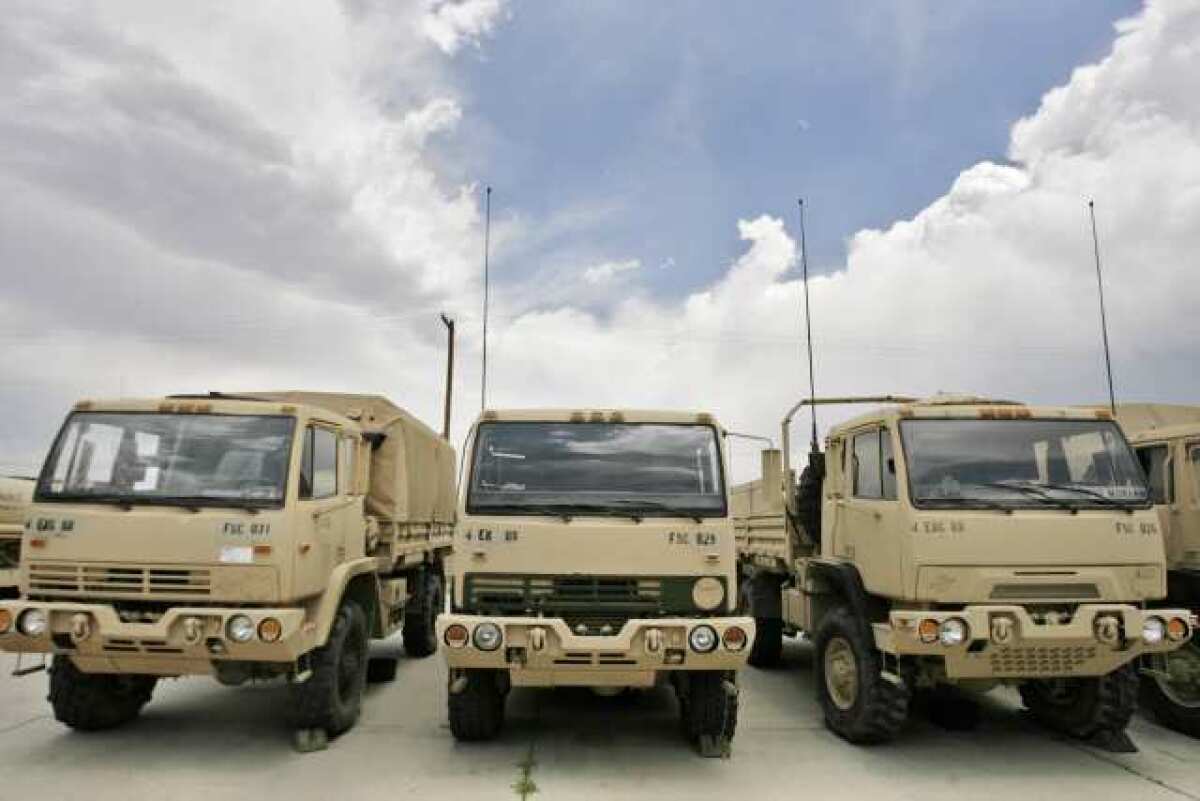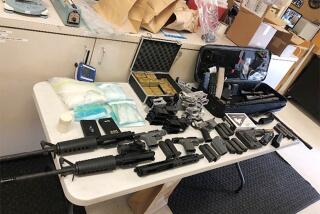U.S. officials arrest 6 men in Mexican cartel murder-for-hire sting

Houston — Six men, including a former soldier, have been arrested in the border town of Laredo, Texas, in connection with drug trafficking and an alleged murder-for-hire plot, according to federal officials.
The arrests culminate a months-long federal sting operation in which the suspects allegedy helped hatch a plan to purchase weapons for drug cartel members in exchange for money and drugs.
Kevin Corley, 29, and Samuel Walker, 28, both of Colorado Springs, Colo., and Shavar Davis, 29, of Denver were arrested over the weekend in Laredo, according to a statement released by the U.S. Drug Enforcement Administration.
During the arrest, a fourth suspect was shot and killed.
The three others appeared in federal court in Laredo on Monday.
Officials also arrested three other men in connection with the plot in South Carolina, according to the DEA statement: Marcus Mickle, 20, and Calvin Epps, 26, both of Hopkins, S.C., and Mario Corley, 40, of Saginaw, Texas.
The plot began in January 2011, when Mickle allegedly began negotiating with what he thought were members of the Mexican Zetas drug cartel to purchase marijuana in return for stolen weapons, according to the DEA statement.
But the cartel contacts were undercover DEA agents.
“Mickle and Epps allegedly told undercover agents about a friend in the military who could provide military weapons to them,” according to the statement. The agents “were later introduced to Corley, who allegedly identified himself as an active-duty officer in the Army responsible for training soldiers.”
Corley was recently discharged as a first lieutenant from Fort Carson, according to a statement the Army’s Human Resources Command released to The Times. He served from November 2008 until March 13, including a deployment to Afghanistan from March 2010 until August 2010, the statement said.
Corley allegedly offered to purchase weapons for the cartel and to provide tactical training, the DEA statement said. He apparently boasted that he could “train 40 cartel members in two weeks,” according to the statement.
In January, Corley allegedly met undercover agents in Laredo to discuss so-called “wet work,” code for a murder-for-hire job, the DEA statement said.
The federal agents told Corley they wanted him to raid a ranch where rival cartel members had 20 kilograms of stolen cocaine, according to the DEA statement.
Corley allegedly agreed to raid the ranch with a partner and kill rival cartel members in return for $50,000 and five kilograms of cocaine, according to the statement. Corley allegedly told agents another active-duty soldier would help him, the DEA statement said.
Corley allegedly provided security for Mickle and Epps when the pair purchased 500 pounds of marijuana in Texas to transport to South Carolina, the DEA statement said. The trailer was intercepted and seized in LaSalle County in southern Texas on Jan. 14.
He then allegedly arranged to have 800 pounds of marijuana and five kilograms of cocaine delivered to South Carolina, Texas and Colorado to be distributed, the statement said.
On March 5, Corley allegedly delivered two AR-15 assault rifles, ballistic vests and other guns and equipment to undercover agents in Colorado for $10,000, according to the DEA statement. At their meeting, Corley allegedly discussed the ranch raid and contract killing again, the statement said.
Corley allegedly told undercover agents he had “purchased a new Ka-Bar knife to carve a ‘Z’ into the victim’s chest and was planning to buy a hatchet to dismember the body,” according to the statement.
After their arrest Saturday, a search of the vehicle the suspects arrived in uncovered “two
semi-automatic rifles with scopes, one bolt-action rifle with a scope and bipod, one hatchet, one Ka-Bar knife, one bag of .223 caliber ammunition and one box of .300 caliber ammunition,” according to the DEA statement.
The investigation leading to the arrests and charges was carried out by the DEA and the FBI, with assistance from the U.S. Army Criminal Investigation Command.
ALSO:
Trayvon Martin case: What does the autopsy say?
Trayvon Martin case: In Sanford, Fla., hundreds speak as one
Landmark sexual-abuse trial: Monsignor called ‘keeper of secrets’
More to Read
Sign up for Essential California
The most important California stories and recommendations in your inbox every morning.
You may occasionally receive promotional content from the Los Angeles Times.











